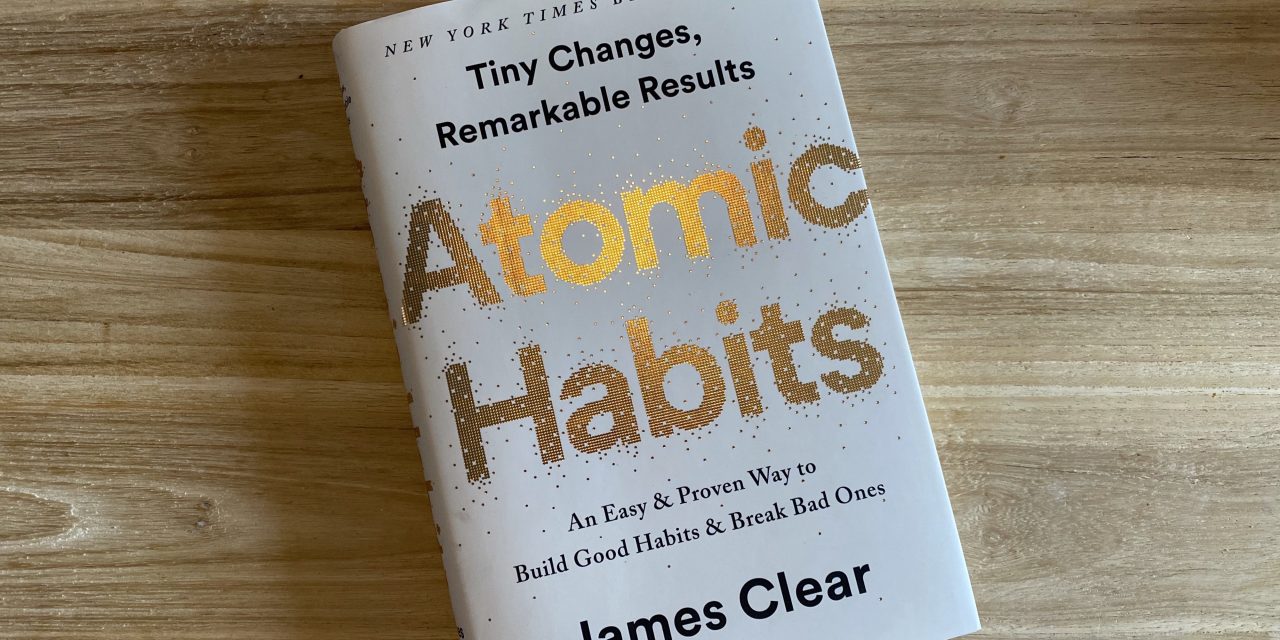Happy New Year! Give yourself a high five AND a pat on the back for making it through 2020. So on to 2021. I think we are all a little shell-shocked from the past 10 months, but hopefully you are still at least somewhat optimistic. If you made resolutions for the year, or listed some goals, you are going to need a plan for achieving them. That’s what this blog is about.
This is the first in a series of blogs based on a book by James Clear, called Atomic Habits. The author lays out a compelling argument for using your daily habits to create your success. He argues that it is tiny (“atomic”) changes compounded over time that lead to achievement, not setting a goal or making a resolution.
Why we need habits
Habits can work for you or against you. You get what you repeat. Are your current daily habits putting you on the path to success? Your results are the “compounded interest” of your daily “investment.”

Blog By Chelsea McClain
Marketing & Team Development Manager
If you take a goal and break it down into components, then improve each by just a mere1%, you will see a significant overall increase. That’s what’s meant by “atomic habits.” Incremental changes which compound into big results.
Success is a matter of daily habits over time, not one-time decisions.
Habits are the automation of daily tasks at home and at work.
The more tasks you can accomplish without consciously thinking about them, the more your brain is free to focus on other areas where you can be creative and innovative. Remember that your company pays you to work as efficiently as possible, so good work habits should be incorporated into everyone’s day.
How Habits Work
Habits are merely reliable solutions to recurring problems in our environment.
The foundation comes first.
Persistence is key in crossing the plateau of latent potential. An ice cube heated one degree at a time from 25-31 degrees shows no change outwardly, but at 32 degrees there is a dramatic change. It is the same with the creation of new habits. The seed of every habit is a tiny decision that grows stronger with repetitive action.
Focus on systems, not your goals.
You need to set goals in order to set the course (system) to achieve it. However, your focus should then shift to the system and off of the goal.
The difference between goals and systems is that goals are about the results you want to achieve, while systems are about the processes that lead to those results. The goal gives an endpoint so the course can be set, while the system sets the progress.
If you completely ignored your goal and focused on your system, would you still succeed? Winners and losers often have the same goals, but winners have better systems. Coach Bill Walsh is famous for saying, “The score takes care of itself.”
Furthermore, focusing on achieving a goal delays happiness until you arrive. Creating and falling in love with a process creates happiness every day. Goals are actually at odds with long term happiness. When the goal is achieved, will there be something that pushes you on afterward? Will you revert to old habits after the goal is achieved?
Your commitment to your process will determine your continual progress and daily wins, which should translate into happiness. You do not rise to the level of your goal, you fall to the level of your system.
For bigger wins this year, create atomic habits that will create better systems.
What habits do I want to form and eliminate this year?
Identity change is key. Shift the way you look at yourself. Behavior that is incongruent with the self will not last. Your goal should be to become a musician, a reader, a runner, etc., not to play a piece, read a book, or run a marathon.
The most practical way to change who you are is to change what you do. If you want to become a writer, then do what writers do. Schedule time to write every week, have a comfortable and quiet place, and leave your phone in another room to reduce distractions. As you create consistent daily, weekly, and monthly wins by changing your behavior, new habits are formed and you are transformed.
Are you ready to change?
First – Decide who you want to be. Who is the type of person who could get what I want? Remember to add supporting words that fit, like “consistent,” “reliable,” “empathetic,” etc.
Second – Take small steps to set up your environment to support who you want to be (both mentally and physically) instead of who you are now. Then constantly remind yourself of what it looks like to be the type of person you want to be.
For example: If you want to be healthier, then all day long ask yourself, “In this situation, what would a healthy person do? Would a healthy person drive to the next building or walk? Would a healthy person eat this bag of potato chips or an apple?” Consistent actions to these questions will create new habits that match the picture of who you want to be.
In the next blog of this series we will explore Building Habits – The Four Laws of Behavior Change. There will be lots of helpful tips for creating, and sustaining your new habits.
Can’t wait? Get Atomic Habits for yourself! Buy the book, download to your Kindle, or listen to the audio book by James Clear.
I encourage you to use your current habit (or create one) to invest in yourself through at least 10 minutes per day of reading (or listening to) a non-fiction book. The result of this compounded time over a week, a month, a year, or a career will be worth it.






